The age 21+, after-hours Colonial Books and Brews event at the Acton Memorial Library on Tuesday, October 1, was attended by more than 200 people. Co-hosted by the Acton 250 Committee and the Acton Memorial Library, with funding from the Acton Memorial Library Foundation and the Acton Lions Club, the event was meant to be fun and educational way and to promote awareness of the events Acton is planning to commemorate the 250th Anniversary of the commencement of the American Revolution.
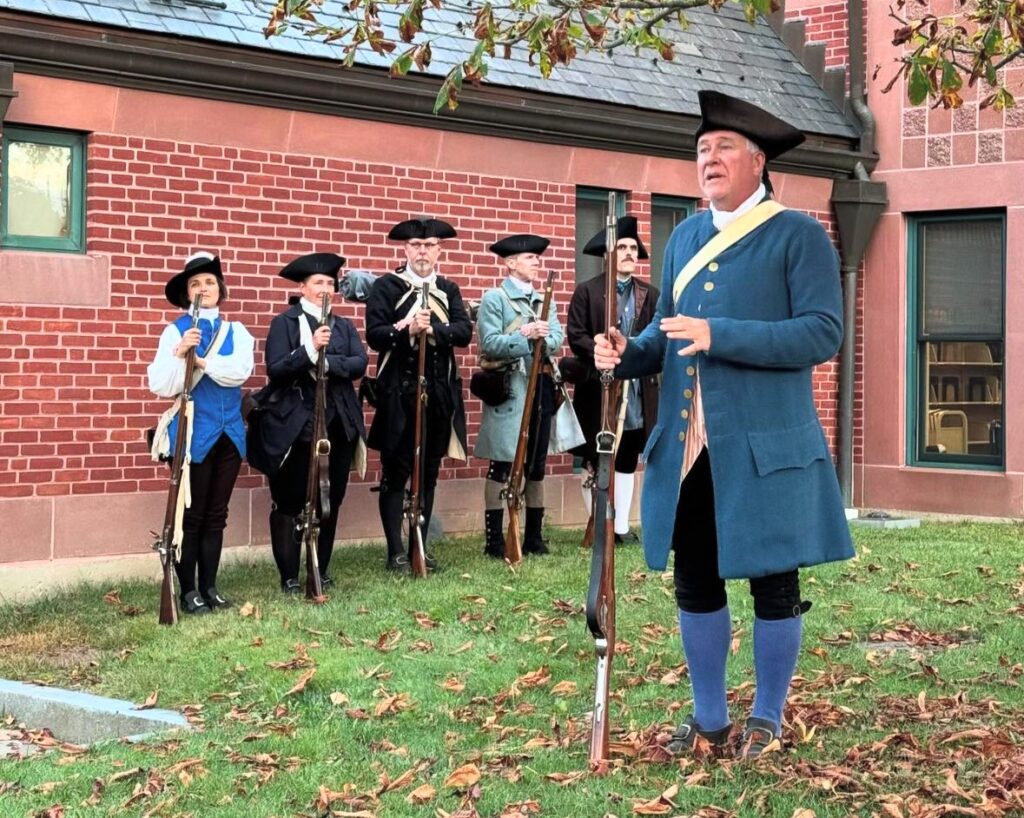
The event was held just two days before the 250th anniversary of Crown Resistance Day (October 3, 1774), remembered in Acton as the anniversary of the day residents sent a list of grievances to King George III and then voted to form a Minute Company. “Every town was required to have a militia company,” explained Steve Crosby of the Acton Minutemen. “They were required to drill twice a year. Mostly, it involved a lot of drinking. Whereas, the Minute Company, once it was formed, was required to drill twice a week, and they were very serious about the drilling. Those men then elected Isaac Davis to be their captain.”
To honor Captain Isaac Davis, in partnership with Dirigible Brewing Company in Littleton, the 250 Committee arranged for the creation of the Isaac Davis Brown Ale.
The circulation desk in the main lobby was transformed into a bar where Dirigible staff poured the ale. Select Board Vice Chair Dean Charter later announced that 160 glasses of this ale were sold at the event.
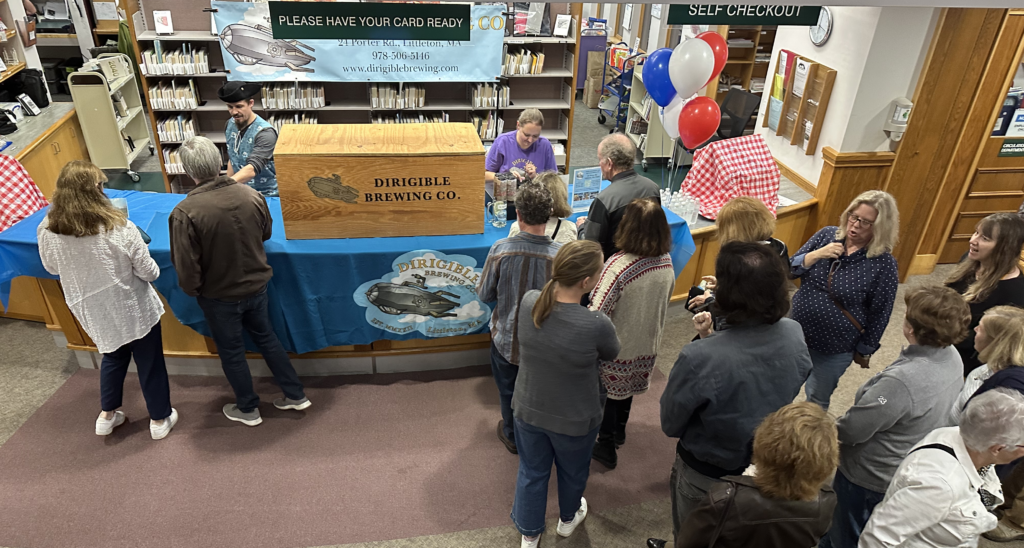
The Isaac Davis plow, currently housed in a glass box next door at Town Hall, is getting some new digs. The 250 Committee commissioned muralist David O’Gara to paint a backdrop for a new floor-to-ceiling glass enclosure to be constructed as part of the Town’s commemoration of the April 19, 1775 anniversary, the day Captain Davis was killed at the North Bridge in Concord. The scene will evoke the view through the door of a barn where the plow might be sitting on Davis’ farm.
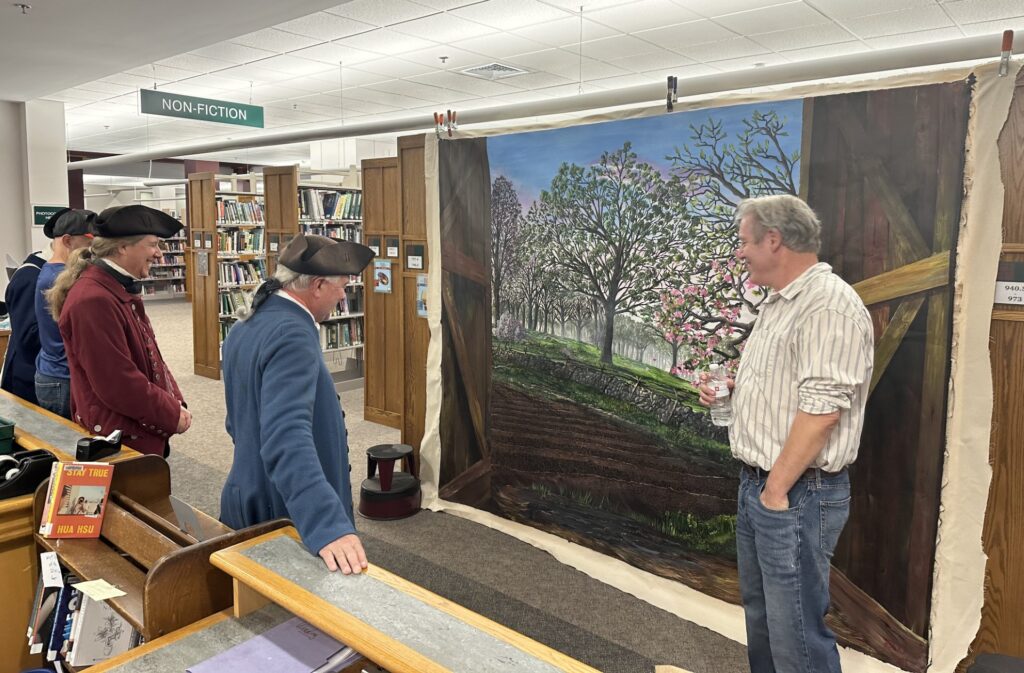
Piano music, tavern tunes from the 1700s played by Daniel Gay sporting a tricorn hat, wafted throughout the library during the event as attendees drank their ale, ate food from a local market, mingled, browsed history books, chatted with Acton 250 Committee members, and purchased Acton 250 merchandise.

Michele Gabrielson of The Revolutionary Classroom, a local middle school history teacher and interpreter who leads tours, demonstrations and lectures, shared the history of local colonial chocolate production with her program, Bittersweet History: 18th century Chocolate. Passing out samples for attendees to taste, she elaborated on the different ingredients that flavored the chocolate, including cinnamon, nutmeg, and red pepper.
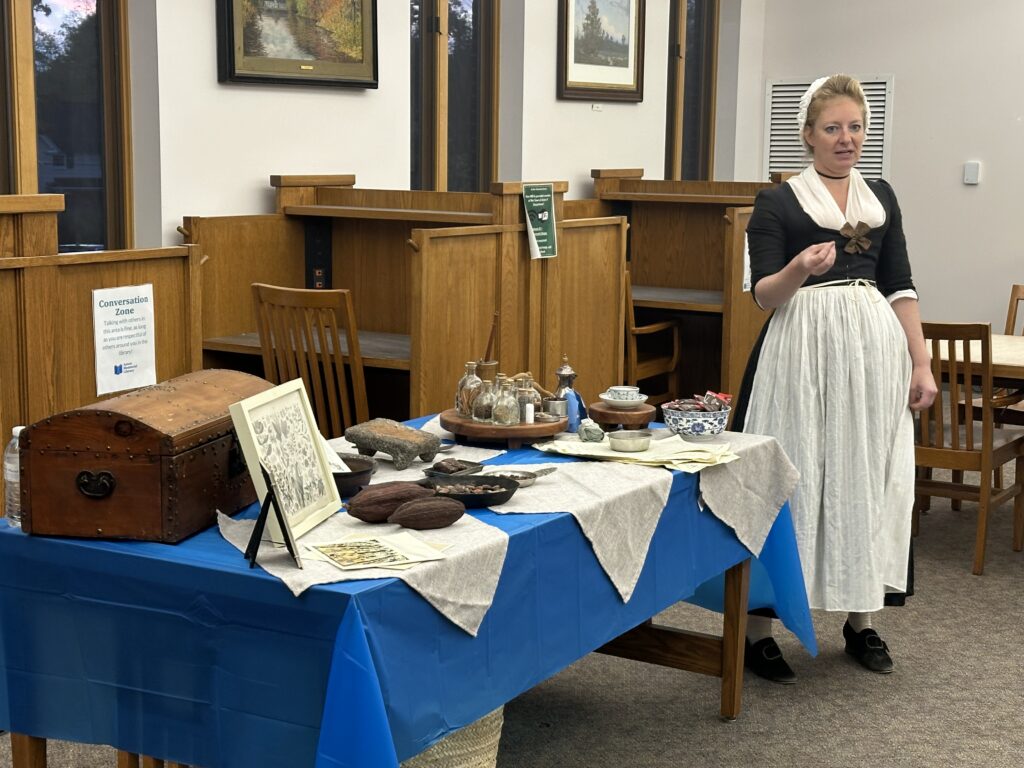
Stacy Booth, a Foodways Historian who offers demonstrations, tutorials and presentations, engaged attendees with information on foodstuffs that colonists were cooking with and eating in the 1700s. Of particular interest, given the “brews” theme of the evening, was the story of apples. Prior to prohibition, apples were primarily used in hard cider production and baking. The varieties were mostly too sour for eating straight from the trees.
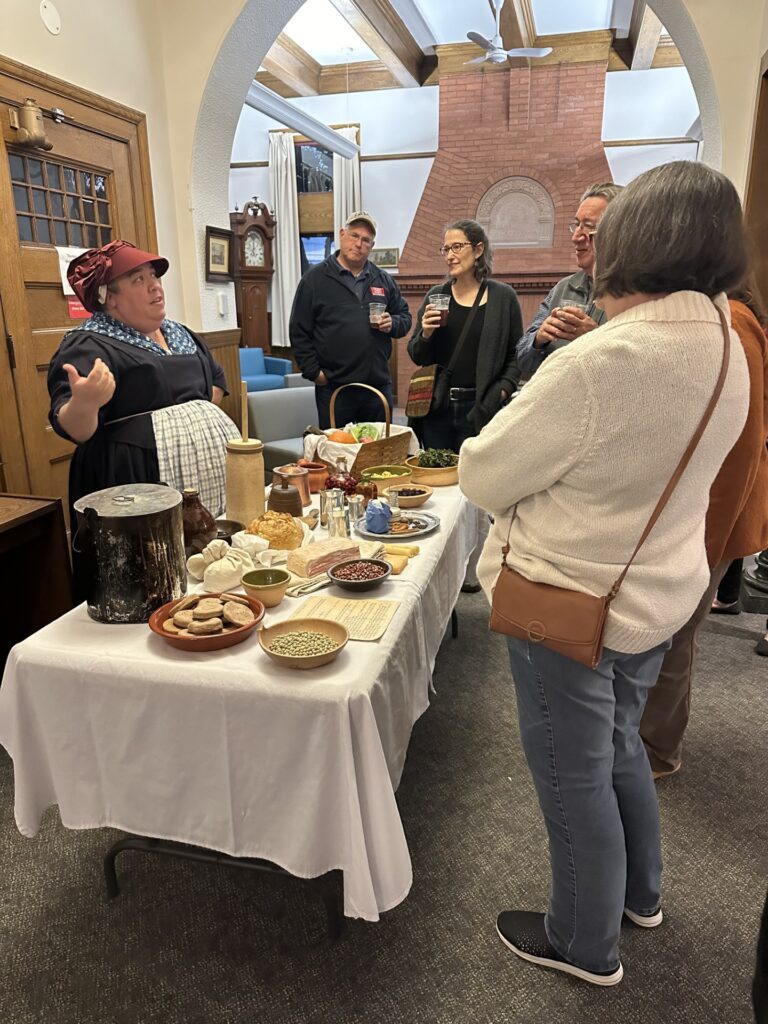
Highlights from the event can be viewed on Acton TV’s channel.
Alissa Nicol is Community Events Reporter for the Acton Exchange, and a member of the Acton Select Board.
